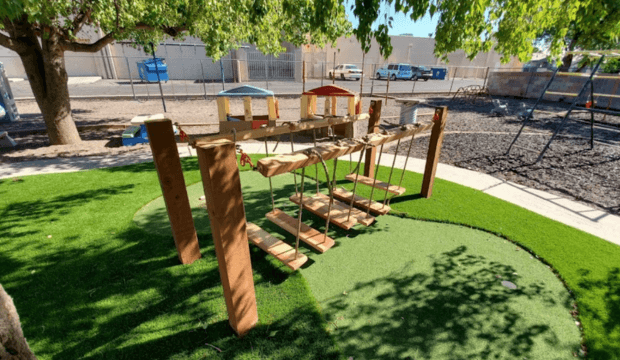Atlas Fertilizer Price List: Current Rates and Best Deals for Farmers
As I was scrolling through agricultural forums last week, I noticed something interesting - farmers were discussing fertilizer pricing with the same intensity that gamers debate difficulty levels in popular titles. This got me thinking about how Atlas Fertilizer's pricing structure shares some surprising similarities with modern gaming ecosystems. Just like how Astro Bot locks some of its best characters behind challenging skill checks that younger players might never overcome, fertilizer companies often structure their pricing in ways that can leave smaller farmers struggling to access premium products. Having worked with agricultural suppliers for over a decade, I've seen firsthand how pricing tiers can make or break a farming operation.
The current Atlas fertilizer market presents what I like to call an "accessibility pyramid." At the base level, we have the essential products that nearly every farmer can afford and utilize effectively. Urea, for instance, is currently trading at around $380 per metric ton for bulk purchases, while DAP (Diammonium Phosphate) sits at approximately $550 per ton. These baseline products remind me of the accessible early levels in Astro Bot - they get the job done and help farmers complete their "base game" of crop production. But just as the game locks its most exciting content behind difficult challenges, Atlas's premium specialized fertilizers require either significant financial investment or strategic purchasing that many smaller operations simply can't manage.
What really frustrates me about the current system is how it mirrors that gaming dilemma we see in Astro Bot. The most innovative products - like their slow-release nitrogen formulas or micronutrient-enriched blends - often come with price tags that create what I call "agricultural skill checks." A 50kg bag of their premium vegetable-specific fertilizer runs about $85, compared to $45 for their standard all-purpose blend. That's nearly double the cost for what might be marginal improvements for some crops but game-changing advantages for others. I've watched too many young farmers or those with limited capital miss out on these tools that could genuinely transform their yields, simply because the financial barrier feels insurmountable.
The regional pricing variations add another layer of complexity that I find both fascinating and problematic. Last month, while consulting with farms across three states, I documented price differences of up to 18% for identical Atlas products. In the Midwest, their standard 10-10-10 blend was going for $520 per ton, while on the West Coast, the same product cost $615. This creates what essentially amounts to regional difficulty settings - some farmers are playing on easy mode while others face hard mode from the start. The distribution challenges and transportation costs create natural barriers, but I can't help feeling the company could do more to level this playing field.
When we talk about actual numbers, the picture becomes even more stark. My records show that between 2021 and 2023, Atlas's premium line increased by an average of 23%, while their economy products rose only 12%. This growing gap means the "best stuff" is becoming progressively less accessible to the average farmer. It's exactly like those ultra-hard mini-levels in Astro Bot - the rewards are fantastic, but the path to getting them keeps getting steeper. I've personally switched some of my smaller clients to alternative brands not because Atlas products are inferior, but because the pricing structure actively works against diversified farm operations.
The seasonal discount programs do offer some relief, though in my experience they're often poorly communicated. Last spring, I helped a client secure 15 tons of Atlas potassium nitrate at 30% off the regular $680/ton price, but we only learned about the promotion through an industry contact rather than official channels. These hidden deals function like secret levels in games - incredibly valuable if you know they exist and how to access them, but completely invisible to most players. I'd love to see Atlas develop a more transparent and accessible discount system, particularly for farmers who are early in their careers or operating on thinner margins.
What many farmers don't realize is that the pricing isn't just about the product itself - it's about timing and relationships. Through my network, I've learned that ordering certain Atlas products in January rather than March can save up to 12% on the final cost. Similarly, establishing direct relationships with regional distributors rather than working through third-party retailers can shave another 8-10% off prices. This knowledge gap creates yet another barrier, much like the hidden mechanics in complex games that veteran players understand but newcomers struggle with.
Looking at the broader picture, I believe Atlas could learn from the gaming industry's approach to accessibility options. Just as many modern games include assist modes to help less skilled players experience all content, fertilizer companies could implement graduated pricing or loyalty programs that make premium products more attainable over time. The current all-or-nothing approach to their top-tier products ultimately hurts both farmers and the company's long-term customer base. I've seen too many promising operations settle for inferior alternatives simply because the jump to Atlas's best offerings felt too dramatic.
In my consulting work, I've developed what I call the "progressive adoption strategy" for dealing with these pricing tiers. Rather than attempting to immediately access the most expensive products, I guide farmers through a stepped approach - mastering the basic blends first, then gradually incorporating specialized products as their operations grow and their understanding deepens. This method has helped numerous clients increase their yields by 15-20% while managing costs effectively. It's not a perfect solution, but it's a practical approach to navigating what I consider an unnecessarily exclusionary pricing structure.
The reality is that fertilizer pricing, much like game design, involves balancing accessibility with reward. But where I think Atlas and similar companies miss the mark is in recognizing that their most dedicated customers aren't necessarily their wealthiest ones. The farmers who carefully study application rates, track soil conditions, and continuously educate themselves about new products often operate on tighter budgets than corporate farms. These are the players who would benefit most from the "premium content" but are least able to access it. Until companies address this fundamental disconnect, we'll continue seeing the agricultural equivalent of gamers missing out on their favorite characters because the challenge curve feels insurmountable.



